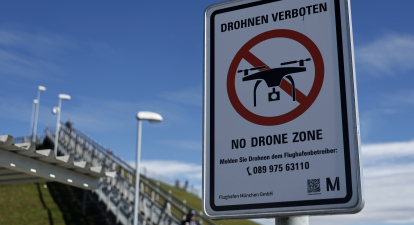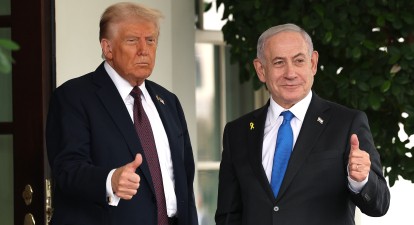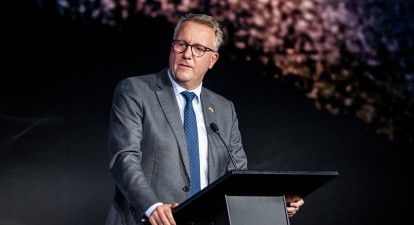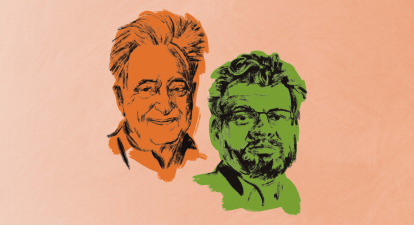
Jacques Attali, in a conversation with Petr Chernyshov, tells why the world has become less open, how entrepreneurs can recognize the “noise” that will create something new, and what kind of “noise” of our time signals the approach of a new era. Photo illustration by Ilya Kolesnyk for Forbes Ukraine
Jacques Attali can predict the future with the help of music, as his theory Noise: The Political Economy of Music says. What does modern music say about the future of the world? Interview with Petr Chernyshov.
Buy an annual subscription to six Forbes Ukraine magazines for the price of four issues. If you value the quality, depth, and power of real-world experience, this subscription is for you.
Jacques Attali, 81, a PhD in economics, is one of the most influential intellectuals in modern France. For five decades, he has helped shape the country’s economic policy as an advisor to presidents from François Mitterrand to Emmanuel Macron. Attali is the author of 86 books, more than 30 of which are devoted to the analysis of the future. His predictions are surprisingly accurate, having described globalization, the digital revolution, and the crisis of traditional institutions back in the 1990s.
Forbes Ukraine invited Attali to talk about his most famous theory, Noise: The Political Economy of Music, which argues that music as “noise” always precedes social change: from Baroque to Rock, every musical style preceded economic and political transformations. According to Attali, listening to music can tell you where society is headed long before it becomes obvious.

Popular Category Ratings Date October 09 Top 30 Employers for Veterans 2025
In a conversation with Forbes Ukraine contributor Petro Chernyshov and editor Tetyana Pavlushenko, Attali talks about why the world has become less open, how entrepreneurs can recognize the “noise” that will create something new, and what kind of “noise” of our time signals the approach of a new era.
Music barometer
You have achieved success in economics, politics, literature, and music. What do these fields have in common?
I try to do the best not only for myself, but also for the world – by setting an example. After all, you can always try something that seems impossible, for example, conducting a symphony orchestra. At the same time, I strive to explain to people what I know, but about which few people know, and, if I can, open their eyes to the challenges ahead.
Through plays, art, and other cultural initiatives, as well as through books and essays, I help people imagine the future and act on that vision.
You play the piano. How has your background as a musician influenced the economic theory you have developed?
I play the piano and conduct a symphony orchestra. In my book Noise: The Political Economy of Music, I try to explain that music can be seen as a way to predict the future. Music is the first human activity to transform, and it gives us ideas about where the world is going.
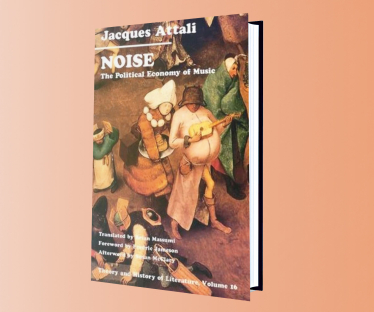
Noise: The Political Economy of Music (1977), Jacques Attali Book cover photo from amazon.com
When was the last time you listened to something and thought, “This is the sound of the future”?
Indian music is very interesting in terms of the music of the future. I like and am interested in many young composers. Music is a diverse world, that's why we have millions of composers. Even artificial intelligence can create something interesting in terms of sounds.
My latest personal emotions in music as a sign of the future are, without a doubt, Techno, Electro, Bassline – music with a four-on-the-floor rhythm.
What does modern music “shout” about our future? What should we prepare for and should we be afraid of what we hear?
Music shows that diversity is all around us. For example, Africa will become a world leader because African music is everywhere. On the other hand, China has no future as a world leader because Chinese music does not have such an impact, although perhaps this is a misconception.
New technologies, including artificial intelligence, are opening up possibilities for music creation. This is an example of how AI can change other areas of our lives.
Books by Jacques Attali
Click “Read more” to read the full help text
Noise: The Political Economy of Music (1977)
A revolutionary work that sees music as a harbinger of social and economic change, where each musical style presupposes the transformation of society.
Millennium: Winners and Losers in the Coming World Order (1991) – an analysis of geopolitical changes after the end of the Cold War and a forecast of a new world order.
Dictionary of the 21st Century (1998) is an attempt to identify the key concepts and trends that will shape the coming century.
Labyrinth in Culture and Society: Pathways to Wisdom (1999) is a philosophical study about finding ways in a complex modern world through the prism of culture and society.
A Brief History of the Future (2006) is a provocative look at the 21st century, where the author predicts future global trends and challenges for humanity.
You wrote Noise… almost 50 years ago. In your theory, “noise” is a harbinger of social and economic transformations. For example, Tesla was “noise” for the auto industry, Airbnb was for the hotel industry, cryptocurrencies are still perceived as “noise” but have already transformed the financial system. How can entrepreneurs recognize productive “noise” in their industries?
I wrote my PhD thesis on the topic “Order through Noise”. Noise destroys the existing order, but in some cases (not always) it can create a new one. The quality of an entrepreneur is to see what destroys and create something else. What creates always helps people achieve results with less effort. This is always the trend of human progress and is the key to entrepreneurship.
Do you see the “noise” right now that is being ignored by most but could be the next transformation?
The next global transformation, I believe, will take place in what I call the economy of life – education, health and culture. They must confront the economy of death, linked to addictions and fossil fuels. The health sector is already undergoing significant transformations, but the most important changes are yet to come.
Education is the next area for transformation. Today’s universities are not much different from those that existed 1,000 years ago. People need to learn throughout their lives, not just in their youth. So we will have to learn in a completely different way than we do today.
Educational challenges
What lessons could Ukraine learn from France to reform its school education system?
I published a book called The History and Future of Education a year ago, so I don't want to focus on France as a model. Obviously, there are two good models of school education systems right now: Singapore and Finland.
Since Ukraine is closer to Finland, I would advise you to pay attention to the Finnish model (emphasis on creativity and critical thinking instead of cramming, no testing until age 16, little homework, teachers have a high level of training and social status. – Forbes Ukraine).
What about higher education, which model is better? Should we try to become more like America, Germany, or France?
The American model of higher education is still the best in the world, even though Donald Trump is trying to destroy it. American universities have the best quality and resources. However, primary and secondary education in the United States is at a low level.
Lessons for Ukraine
You were the first president of the EBRD, from 1991 to 1993…
Not only that, the creation of the EBRD was my idea, I founded it in 1991.
As an entrepreneur in the public sector, you…
A fair comparison.
During your time as President of the EBRD, you helped countries like Ukraine build market economies. What would you change about the EBRD today to better cooperate with developing countries?
When I was the President of the EBRD, I saw it as a European institution. I wanted its sphere of influence to be limited to European countries, including Eastern Europe. At that time, the USSR still existed, and I wanted to see it as a full member of the EBRD, because in the long term I believed that Ukraine and Russia had a place in Europe. We did not succeed in achieving this because Russia went in the other direction.
Now the EBRD has lost its European identity and has become a global financial institution: it invests in Tunisia, Morocco, Côte d'Ivoire and other countries. This saddens me, I would focus on European countries that are not members of the European Union.
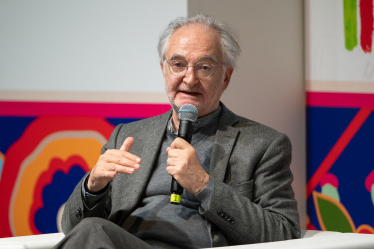
The economies of life – education, health and culture – must counter the economies of death linked to addictions and fossil fuels, Attali believes. Photo: Getty Images
What is the main lesson you learned from working at the EBRD?
In a country where it is impossible to develop a market economy, democracy and the rule of law, stable development is impossible. The rule of law is a condition for a stable economy and political situation in the country.
I am proud that the EBRD is the only institution that has included democratic requirements for lending. It is impossible to lend to a country or a company that is not moving towards democracy.
You research microfinance. Currently, Grameen Bank in Bangladesh is the world leader in microfinance. Its founder, Muhammad Yunus, won the Nobel Peace Prize for helping millions, mostly women, lift themselves out of poverty by providing loans at 20-25% interest. They say that focusing on women makes their model more credible. You also founded Positive Planet, a nonprofit organization to combat poverty through microfinance. How are your approaches different?
We We do not provide financing, we only advise. We help develop business ideas, business plans and marketing. There is always funding for a reliable project. We work all over the world, helping people implement serious projects. This is the best approach.
Western partners have frozen $300 billion in Russian assets, and there is an idea to confiscate them to rebuild Ukraine. But some believe that this could scare other countries and weaken trust in the West. What do you think about this?
Europe and the rest of the world need to look at this more broadly. We can use the proceeds from frozen Russian assets, but not take the assets themselves, because that could threaten confidence in European financial institutions and collapse the euro.
So I'm cautious about using the assets themselves, although the income from them can be used. Unfortunately, we have to stand by that.
Even if Russia attacks a NATO member country, will you still adhere to this position?
If we go to war with Russia, it will be a different situation. If Russia is ready to attack NATO, it will be a different world. It will be a war in terms of military tactics. New measures will have to be taken.
Western sanctions against Russia, imposed after 2014 and tightened after 2022, were supposed to stop it, but Russia is still trading with China and India. Why aren’t they working as Ukrainians hoped? What should Europe and the US implement to finally make them effective for Ukraine’s victory?
We must continue to enforce sanctions. Sanctions against countries that help Russia circumvent sanctions are a good idea.
I have a very simple sanction option. All Russians use iPhones or Android phones, both of which are owned by two large American companies. Why wouldn't the US order Google and Apple to stop using these operating systems for Russian numbers? Then Russia would be brought to its knees, without harming Europe or the US.
I don't know, but I'll look into this and see if it's possible without an alternative project. I'll get back to you with this idea.
This is a very real and simple sanction. I used to be the CEO of the largest mobile operator in Ukraine and I know how it works… You obviously don’t like Donald Trump very much, like many people in the world. But don’t you think that the US has made a big contribution by forcing European countries to increase their defense spending?
Absolutely. I have been saying for over 15 years: Europeans must understand that we are left alone and must defend ourselves. Trump is helping us with this. But if we increase the defense budget only to buy American weapons, it increases our dependence on the United States. And this is nonsense.
We should use these resources to develop European industry, and Ukrainian industry is an important part of the European defense industry. Unfortunately, Ukraine is at the forefront and is improving its defense industry more every day than other countries. Therefore, cooperation with European industry is vital for both sides.
Presidential Advisor
You were a special advisor to French President François Mitterrand in the 1980s, when the country was actively shaping its role in Europe and the world. Your book Verbatim provides a behind-the-scenes look at his presidency. What do you think are the three most important legacies Mitterrand left behind in politics, economics, or international relations?
One of the greatest achievements is the beginning of building a strong Europe, understanding that it is Europe that allows us to maintain influence on the world stage. The second is the preservation of France's defense capabilities and nuclear potential as key components of economic and soft power. If you don't have strong defense, you don't have real soft power.
Third, the opportunity for left-wing democrats, social democrats, to win elections and implement important reforms. I am proud of the reforms of this period, including the abolition of the death penalty, and many of the social reforms that are in place.
The main achievement is the expansion of the European family to the east: both through the process of enlargement and through the concept of the European political community in 1991.
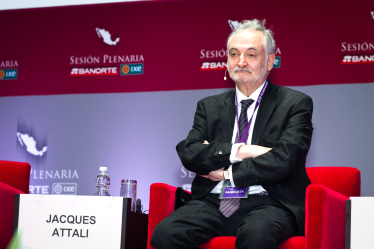
Europe is at a crossroads right now. We either integrate more in terms of defense, industry and industrial policy, or we don't. Photo Shutterstock
How have French society, economy, and foreign policy changed in the decades since Mitterrand's rule?
The world has become more open, but values have become more conservative. The positive thing is that people have started to create their own companies, rather than looking for jobs in global corporations. The European Union is now the basis for everyone, and no one wants to leave it, unlike in the 80s.
The negative is the large public debt, which today significantly exceeds the level of 50% of GDP, which was during the Mitterrand era. The economy was strong and industrial at that time. Many companies created in the 80s and 90s are now world leaders. That period resembles the processes that are currently taking place in Ukraine. Then we laid the foundation for a strong Europe.
France has the highest government share of gross domestic product and very high tax rates compared to other European countries. How did this happen?
I I can talk about Europe, but not about the details of French policy. Europe is at a crossroads right now. We either integrate more in terms of defense, industry and industrial policy, or we don't. This is currently being discussed within the framework of the budget from the European Commission, which, unfortunately, is not well received.
The implementation of Mario Draghi's report (a 400-page report on the critical state of the European economy with proposals for investments of €800 billion – Forbes) and similar documents is of great importance in order to promote the development of the industrial base and the defense of Europe. If it is implemented, Europe will become stronger. If not, we will face a split, which will be a catastrophe for the whole world.
This is the main challenge of today, bigger than any details of French or German politics.
The material was published in Forbes Ukraine magazine No. 4 [37] for August – September 2025.
Materials on the topic

Category Leadership Date May 22 Making Ukraine Great Again. The Recipe for a Ukrainian Miracle, Two Tips for Trump and the Media in the Age of TikTok and YouTube. Interview with Forbes Editor-in-Chief Steve Forbes

Category World Date April 06 “America didn’t grow because of tariffs, it grew despite them.” A conversation with “The Grumpy Economist” John Cochrane from Stanford about inflation, Trump’s policies, and the EU’s problems

Category Money Date January 17 Musk is an oligarch, Milley is failing, Ukraine is clearly the target. Interview with Nobel Prize winner in economics and author of “Why Nations Fail” James Robinson

Category Money Date October 14, 2024 The Nobel Prize in Economics was awarded to the authors of the book “Why Nations Fail” Daron Acemoglu and James Robinson. Forbes Ukraine's extensive interview with Acemoglu Contributors work with Forbes on a freelance basis. Their texts reflect their personal point of view. Do you have a different opinion? Write to our editor Tetyana Pavlushenko – [email protected]
